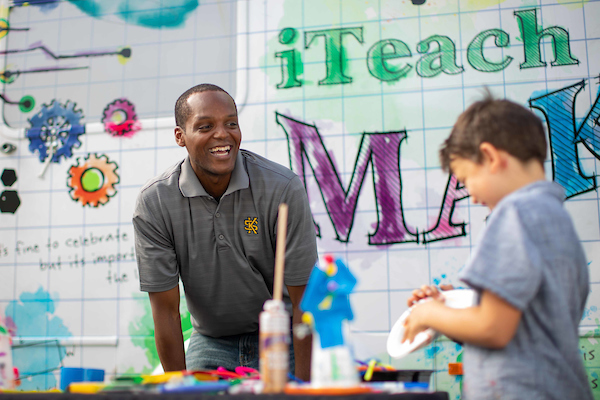Elementary Education
Learn More About Elementary Education
Admission Requirements
Students may initially declare an "-Interest" based major in this subject, but must still meet additional requirements to be formally accepted into the degree program.
Click Here to learn more about Teacher education Admission requirementsSample Classes
-
ECE 3370: Child Development and Families
Candidates will learn about child development theories, educational/early care environments, play, and learning from conception to middle childhood. Building relationships with diverse families will also be addressed. Candidates will use the knowledge gained in the course to identify and plan high quality learning environments for children ages birth through fifth grade and their families.
-
ITEC 3100: Improving Learning with Technology in Elementary Classrooms
Teacher candidates learn to use technologies to promote student achievement in elementary content area and technology literacy standards. Special topics include using technology to improve students’ English language learning, to assess student learning, and to differentiate instruction. Candidates also learn to manage their digital activities in ways appropriate for a professional educator; advocate for students without beyond-school access; and teach K-12 students how to use technology safely, ethically, and legally.
-
ECE 4410: Reading and Writing Across the Curriculum
This course consists of integrating language arts across the curriculum and effective strategies for planning, implementing, and evaluating instruction in reading, writing, listening, and speaking in preschool through fifth grade. Emphasis is placed upon assessment techniques and approaches to conducting guided lessons in reading and writing that are culturally and developmentally appropriate.
-
ECE 4465: Elementary Classroom Management and Learning Environments
The course is designed for elementary teacher candidates to explore and understand classroom management, guidance, and ways of dealing with challenging behaviors in developmentally and culturally appropriate ways. Topics include classroom management strategies, the importance of relationship building, reflective practice, stakeholder communication, and building cooperative and mutually beneficial relationships as a part of developing as a professional.












